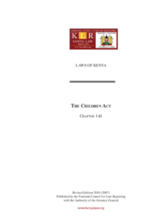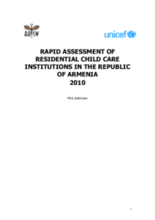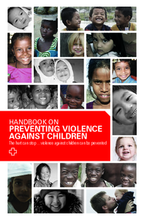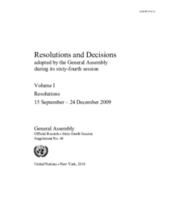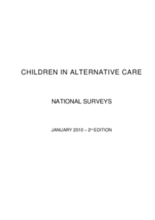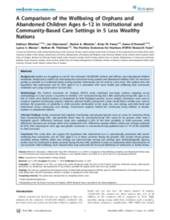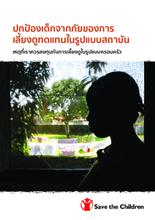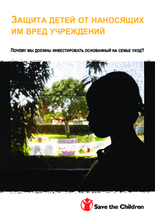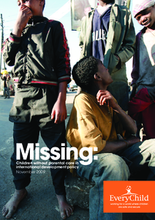Displaying 1351 - 1360 of 1510
The Children Act, Chapter 141 is a Kenyan law that addresses provision for parental responsibility, fostering, adoption, custody, maintenance, guardianship, care and protection of children; provision for the administration of children’s insti
The study covers all residential child care institutions operating in Armenia, with the purpose of creating a basic baseline for further analysis required for the progressive reduction of placement of children and the development of alternative child care services. The aim of the assessment is to verify the situation of each child in relation to their families, and the respect of their entitlements related to their specific condition.
The Canadian Red Cross has produced a handbook on the prevention of violence against children. The handbook includes specific guidance on preventing violence against vulnerable children, such as children in institutions, children involved in armed conflict and children with disabilities.
The present volume contains the resolutions adopted by the General Assembly from 15 September to 24 December 2009, including the Guidelines for the Alternative Care of Children on page 376.
In 2009 Eurochild carried out a survey of the situation of children in alternative care in Europe through its member organisations. The survey was not intended as a scientifically rigorous research exercise but rather to identify what information is readily available and to note some common trends across Europe.
Global policy makers are advocating that institution-living orphans and abandoned children (OAC) be moved as quickly as possible to a residential family setting and that institutional care be used as a last resort.
As a result of the HIV/AIDS pandemic, there are now more than 12 million orphans in sub-Saharan Africa. The majority of these children have been absorbed into their extended families.
This report from Save the Children outlines recommendations to governments and donors in order to ensure that positive childcare and protection practices are pursued at every level.
This report from Save the Children outlines recommendations to governments and donors in order to ensure that positive childcare and protection practices are pursued at every level.
Explores the negative impacts of loss of parental care on children. Advocates for reform for children based on assertion that failure to keep children in families, out of residential institutions and off the streets, will be another barrier to the achievement of the Millennium Development Goals

